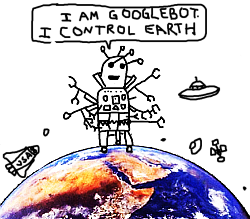Want smarter insights in your inbox? Sign up for our weekly newsletters to get only what matters to enterprise AI, data, and security leaders. Subscribe Now
 The next wave of e-commerce is clearly going to be social — and there are a raft of players looking for an angle on the business.
The next wave of e-commerce is clearly going to be social — and there are a raft of players looking for an angle on the business.
Google is thinking about buying Groupon for $3 billion or more, the Chicago-based daily-deals site whose rocket-ship growth has captivated Internet investors, according to Kara Swisher of AllThingsD.
Business Insider’s Henry Blodget thinks it’s a great idea — for Google.
I think it’s a terrible idea — for Groupon.
Sure, a deal would let Groupon’s investors cash out at a multibillion-dollar valuation. And perhaps they’d be smart to sell now, if the group-buying phenomenon is just a fad. Yahoo has been interested in Groupon in the past, and Amazon.com is rumored to be considering an investment in Groupon archrival LivingSocial.
I don’t think it’s a fad, though. Nor is it time for Groupon to sell. That’s because Groupon really doesn’t have much to do with group buying, despite the name. It’s about giving small, local businesses, which depend on acquiring new customers, a cheaper, more effective way to do so, through cleverly written, deeply discounted offers distributed mostly by old-fashioned email.
That business requires an army of humans, from salespeople who solicit businesses, to city planners who curate the best offers, to copywriters who craft marketing messages on behalf of businesses that could never afford to hire an advertising agency.
In broad strokes, it makes sense for Google to look at a business like Groupon, which is expanding rapidly into cities across the U.S. and countries around the world, fueled by hundreds of millions of dollars raised from the likes of Lightbank, NEA, Accel Partners, and DST, the Internet-investment firm of Russia’s Mail.ru.
But the strategic fit is awful. Google has bought two businesses, dMarc Broadcasting and FeedBurner, right at the point that they were getting traction selling specialized advertising products — Internet-brokered radio ads and RSS-feed ads, respectively — to curious if reluctant customers. Google ripped out the sales forces, replaced them with self-service Web sales, and watched as their acquisitions fell apart.
Some products are sold, not bought. Groupon, which has run into bad publicity when a handful of small businesses got overwhelmed by the reaction to their discount offers, needs a hands-on approach and consultative sales, not Google’s classic automated approach.
True, Groupon needs to build up its technology over time and explore ways to make its sales process more efficient so it can run a higher volume of deals and target them by neighborhood and demographic, not just cities. But that’s not so difficult a technological problem that it requires Google-scale servers and algorithms.
The cultural fit is even more dreadful to consider. While Google likes to think of itself as quirky and nerdy, it’s got nothing on the off-kilter atmosphere created by Groupon CEO and founder Andrew Mason, who’s said he pulls pranks on his staff like hiring a man to walk around the office in a ballerina’s tutu. Google’s idea of a creative environment are lava lamps, exercise balls, and cartoon logos. Nice try, Googlers.
Groupon’s human touch may be its ultimate poison pill to technology’s big acquirers. There’s an ongoing debate over whether Groupon would have thrived in Silicon Valley, with its emphasis on computer servers over customer service. Perhaps the company’s too one-of-a-kind to draw such broad conclusions. But I don’t think Google has much to offer Groupon. Besides cold, hard cash.
[Pic via Give Up Internet]

